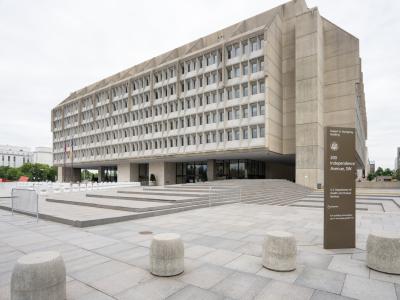Over the past 3 days, Saudi Arabia's Ministry of Health (MOH) announced 12 new MERS-CoV cases, 9 of them in Riyadh, with at least 8 linked to a quickly growing healthcare outbreak in the city.
Since Jun 15, Saudi Arabia has reported 25 cases in Riyadh, most of them involving healthcare workers or patients, including several with asymptomatic infections. The timing of Riyadh's outbreak is similar to one that occurred in the city last summer from June to August that sickened at least 130 people.
The latest outbreak appears to be centered at King Khalid University Hospital in Riyadh, according to a report in Arabic translated and posted on Jun 19 at H5N1 blog. The 850-bed facility, which has an outpatient clinic, opened in 1982 and draws patients from northern Riyadh. The infectious disease blog on Jun 17 also noted recent Twitter activity based on Saudi news reports about the hospital temporarily suspending some services due to an outbreak.
That the country is grappling with another burgeoning hospital outbreak underscores a key finding from a World Health Organization (WHO) joint mission in January. Experts at that time said that although the country has made progress against MERS-CoV (Middle East respiratory syndrome coronavirus), challenges remain. They said that lessons in infection prevention and control were slow in being implemented in hospitals and other healthcare systems.
In other MERS-CoV developments, the WHO yesterday provided new details on six recent cases from Saudi Arabia reported between May 15 and Jun 15, one of them fatal. Only one of those cases was in Riyadh, and four of them had a history of contact with camels or drinking raw camel milk.
Riyadh outbreak expands; sporadic cases elsewhere
Of the 8 cases with ties to the Riyadh hospital outbreak, 6 involve foreign female healthcare workers ages 28 to 47—3 who are asymptomatic and 3 who are symptomatic. The healthcare workers who are sick are all in stable condition.
Two of the new Riyadh cases are in patients, Saudi women ages 55 and 64 who are asymptomatically infected with MERS-CoV.
The slew of cases in Riyadh also includes a household contact: a 42-year-old Saudi man who has symptoms and is hospitalized in stable condition. His case might also be linked to the hospital outbreak, but the MOH did not specify.
In addition to the nine Riyadh cases, three cases were reported in other parts of Saudi Arabia, all with primary exposure to MERS-CoV, meaning they weren't infected by another patient. They include two Saudi men ages 82 and 44 from Najran, in the far southern part of the country. The older man is listed in critical condition, and the younger one is reported as stable. The third case involves a 58-year-old Saudi man from Taif who is also in stable condition.
Along with the new cases, the Saudi MOH also reported a death from the virus in an earlier-announced patient, a 48-year-old Saudi woman from Riyadh who is not a healthcare worker and had underlying health conditions.
The new developments boost the country's MERS-CoV total to 1,416, which includes 594 deaths. The MOH added that 32 people are still being treated for their infections.
WHO details 6 earlier Saudi cases
Two of the six patients in the WHO update didn't have an obvious infection source, and investigations are under way into how they were exposed. One is a 49-year-old woman from Buraydah who got sick on Jun 9 and was hospitalized the next day. She has underlying health conditions and is hospitalized in critical condition. The other is an 85-year-old woman from Riyadh, also with preexisting medical conditions, who fell ill on May 27 and was hospitalized on Jun 1. She is listed in stable condition.
The four other patients are men ages 54 to 72 from four different cities: Medina, Al Kharj, Tabuk, and Hail. All had a history of frequent contact with camels and had consumed raw camel milk. In all four instances, the MOH notified the Ministry of Agriculture, and camel investigations are ongoing.
Their illness onsets ranged from May 8 to Jun 8. Three of the patients are in stable condition, and one, a 59-year-old man from Tabuk who had underlying health conditions, died from his infection.
See also:
Jun 18 Saudi MOH statement
Jun 19 Saudi MOH statement
Jun 20 Saudi MOH statement
Jun 19 H5N1 blog post
Jun 17 H5N1 blog post





















